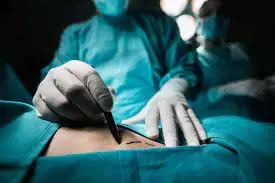- Home
- Medical news & Guidelines
- Anesthesiology
- Cardiology and CTVS
- Critical Care
- Dentistry
- Dermatology
- Diabetes and Endocrinology
- ENT
- Gastroenterology
- Medicine
- Nephrology
- Neurology
- Obstretics-Gynaecology
- Oncology
- Ophthalmology
- Orthopaedics
- Pediatrics-Neonatology
- Psychiatry
- Pulmonology
- Radiology
- Surgery
- Urology
- Laboratory Medicine
- Diet
- Nursing
- Paramedical
- Physiotherapy
- Health news
- Fact Check
- Bone Health Fact Check
- Brain Health Fact Check
- Cancer Related Fact Check
- Child Care Fact Check
- Dental and oral health fact check
- Diabetes and metabolic health fact check
- Diet and Nutrition Fact Check
- Eye and ENT Care Fact Check
- Fitness fact check
- Gut health fact check
- Heart health fact check
- Kidney health fact check
- Medical education fact check
- Men's health fact check
- Respiratory fact check
- Skin and hair care fact check
- Vaccine and Immunization fact check
- Women's health fact check
- AYUSH
- State News
- Andaman and Nicobar Islands
- Andhra Pradesh
- Arunachal Pradesh
- Assam
- Bihar
- Chandigarh
- Chattisgarh
- Dadra and Nagar Haveli
- Daman and Diu
- Delhi
- Goa
- Gujarat
- Haryana
- Himachal Pradesh
- Jammu & Kashmir
- Jharkhand
- Karnataka
- Kerala
- Ladakh
- Lakshadweep
- Madhya Pradesh
- Maharashtra
- Manipur
- Meghalaya
- Mizoram
- Nagaland
- Odisha
- Puducherry
- Punjab
- Rajasthan
- Sikkim
- Tamil Nadu
- Telangana
- Tripura
- Uttar Pradesh
- Uttrakhand
- West Bengal
- Medical Education
- Industry
PEG gastrostomy more promising procedure than IRG gastrostomy: Study

USA: A new study by Dr. Divyanshoo R. Kohli, MD, and team reported that out of 33,000 gastrostomy procedures, percutaneous endoscopic gastrostomy (PEG) showed a lower incidence of adverse outcomes and 30-day mortality compared to interventional radiologist–guided gastrostomy (IRG).
This study is published in The American Journal of Gastroenterology.
Gastrostomy is a well-known procedure that provides passage for food and to vent the stomach for air or drainage. The objective of the study was to compare outcomes of percutaneous endoscopic gastrostomy and interventional radiologist-guided gastrostomy using an integrated nationwide database.
The study used electronic methods were VA Informatics and Computing Infrastructure database, patients who underwent PEG or IRG from 2011 through 2021 that were selected using Current Procedural Terminology and International Classification of Diseases codes. The primary outcome was the comparative incidence of adverse events between PEG and IRG. Secondary outcomes included all-cause mortality. Comorbidities were identified using International Classification of Diseases codes, and adjusted odds ratios (OR) for adverse events were calculated using multivariate logistic regression analysis.
The results of the study were:
• A total of 23,566 (70.7 ± 10.2 years) patients underwent PEG and 9,715 (69.6 ± 9.7 years) underwent IRG.
• Across all subtypes of malignancies of the head and neck and foregut, the proportion of patients undergoing IRG was greater than those undergoing PEG.
• The all-cause 30-day mortality and the overall incidence of adverse events were significantly lower for PEG compared with those for IRG (PEG vs IRG).
• All-cause 30-day mortality, was 9.35% vs 10.3% (OR 0.80); perforation of the colon was, 0.12% vs 0.24% (OR 0.50); peritonitis was, 1.9% vs 2.7% (OR 0.68); and hemorrhage was 1.6% vs 1% (OR 1.47).
Dr. Kohli and his team concluded that "In a large nationwide database of more than 33,000 gastrostomy procedures, PEG was associated with a lower incidence of adverse outcomes and the 30-day mortality than IRG."
Reference:
Kohli DR, Kennedy KF, Desai M, Sharma P. Comparative Safety of Endoscopic vs Radiological Gastrostomy Tube Placement: Outcomes From a Large, Nationwide Veterans Affairs Database. Am J Gastroenterol. 2021 Sep 10. doi: 10.14309/ajg.0000000000001504. Epub ahead of print. PMID: 34506328.
Medical Dialogues consists of a team of passionate medical/scientific writers, led by doctors and healthcare researchers. Our team efforts to bring you updated and timely news about the important happenings of the medical and healthcare sector. Our editorial team can be reached at editorial@medicaldialogues.in.
Dr Kamal Kant Kohli-MBBS, DTCD- a chest specialist with more than 30 years of practice and a flair for writing clinical articles, Dr Kamal Kant Kohli joined Medical Dialogues as a Chief Editor of Medical News. Besides writing articles, as an editor, he proofreads and verifies all the medical content published on Medical Dialogues including those coming from journals, studies,medical conferences,guidelines etc. Email: drkohli@medicaldialogues.in. Contact no. 011-43720751


